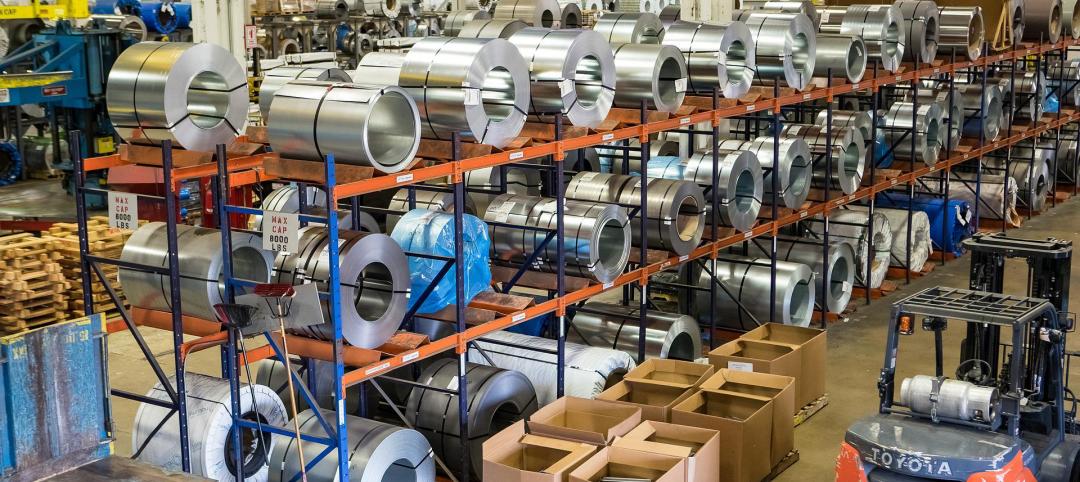With 528 buildings totaling 112.5 million sf, Los Angeles topped the EPA's ranking of the U.S. metropolitan areas with the most Energy Star certified buildings in 2012. Rounding out the top five are Washington, D.C. (462 buildings); Chicago (353); New York (325); and Atlanta (304).
In 2012, more than 20,000 Energy Star certified buildings across America helped save more than $2.7 billion in annual utility bills. The cumulative number of Energy Star certified buildings has increased by more than 24 percent compared to last year, representing more than 3 billion square feet of floorspace nationwide. In 2012 alone, more than 8,200 buildings earned EPA’s Energy Star certification.
Phoenix broke into the top 10 for the first time, with 202 buildings. Boston, a newcomer to the list last year, held on to 10th place, with 11th place Philadelphia not far behind. Seventh-place Houston, with 241 buildings, is home to one in particular that stands out: Phoenix Tower, a 34-story office building, has earned EPA’s Energy Star 14 times—more than any other building in America.
Here are the top 25:
1. Los Angeles - 528 buildings
2. Washington, D.C. - 462
3. Chicago - 353
4. New York - 325
5. Atlanta - 304
6. San Francisco - 291
7. Houston - 241
8. Dallas-Fort Worth - 214
9. Phoenix - 202
10. Boston - 188
11. Philadelphia - 174
12. Denver - 161
13. Cincinnati - 137
14. Charlotte - 133
14. Minneapolis-St.Paul - 133
15. San Diego - 123
16. San Jose - 114
17. Seattle - 108
18. Miami - 104
19. Detroit - 100
20. Sacramento - 97
21. Indianapolis - 91
22. Albuquerque, N.M. - 89
23. Kansas City, Mo. - 82
23. Portland, Ore. - 82
24. Riverside, Calif. - 69
25. Virginia Beach, Va. - 67
Download a PDF of the full list.
Related Stories
Multifamily Housing | Jun 21, 2022
Two birds, one solution: Can we solve urban last-mile distribution and housing challenges at the same time?
When it comes to the development of both multifamily housing and last-mile distribution centers, particularly in metropolitan environments, each presents its own series of challenges and hurdles. One solution: single-use structures.
Libraries | Jun 21, 2022
Kingston, Ontario, library branch renovation cuts energy use to 55% of benchmark
A recent renovation of the Kingston (Ontario) Frontenac Public Library Central Branch greatly boosted energy and water efficiency while making the facility healthier and safer.
Building Materials | Jun 20, 2022
Early-stage procurement: The next evolution of the construction supply chain
Austin Commercial’s Jason Earnhardt explains why supply chain issues for the construction industry are not going to go away and how developers and owners can get ahead of project roadblocks.
Healthcare Facilities | Jun 20, 2022
Is telehealth finally mainstream?
After more than a century of development, telehealth has become a standard alternative for many types of care.
Building Team | Jun 20, 2022
Andres Caballero Appointed President of Uponor North America
Uponor Corporation (Uponor) has named Andres Caballero president of its Building Solutions – North America division and a member of the Executive Committee at Uponor.
Building Team | Jun 17, 2022
Data analytics in design and construction: from confusion to clarity and the data-driven future
Data helps virtual design and construction (VDC) teams predict project risks and navigate change, which is especially vital in today’s fluctuating construction environment.
Sports and Recreational Facilities | Jun 17, 2022
U. of Georgia football facility expansion provides three floors for high-performance training
A major expansion of the University of Georgia’s football training facility has been completed.
Building Team | Jun 16, 2022
Hybrid work expected to reduce office demand by 9%
Businesses are slowly but consistently transitioning to a permanent hybrid work environment, according to a senior economist at Econometric Advisors.
Building Team | Jun 16, 2022
USGBC announces more than 23 million square feet of LEED certified net zero space
Today, the U.S. Green Building Council announced nearly 100 net zero certifications earned under the LEED Zero program, representing more than 23 million square feet of space.
AEC Business Innovation | Jun 15, 2022
Cognitive health takes center stage in the AEC industry
Two prominent architecture firms are looking to build on the industry’s knowledge base on design’s impact on building occupant health and performance with new research efforts.

















